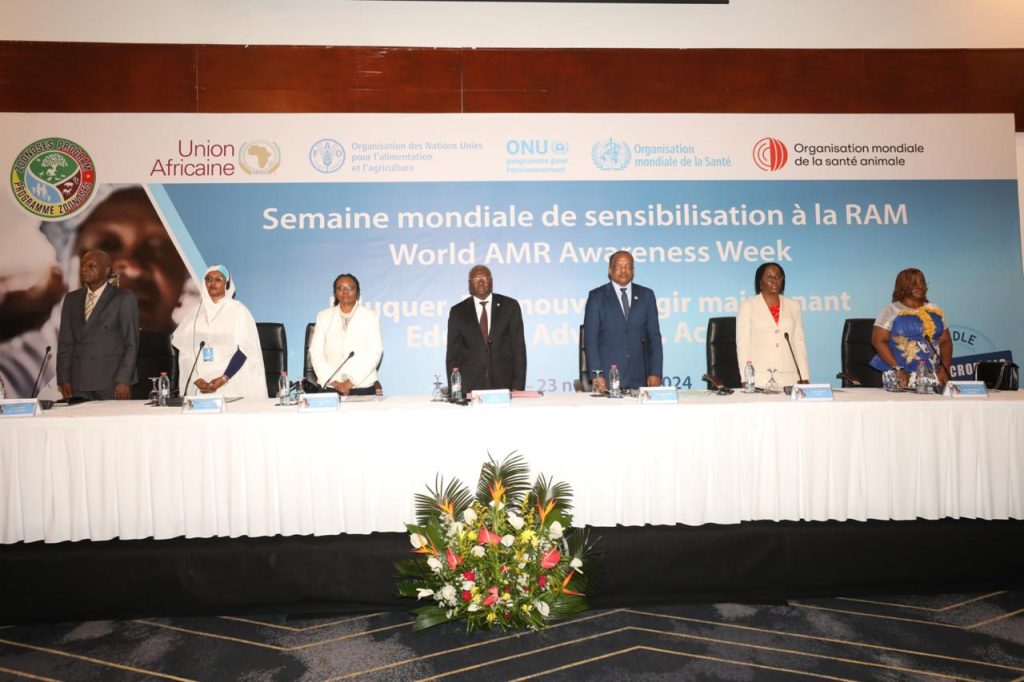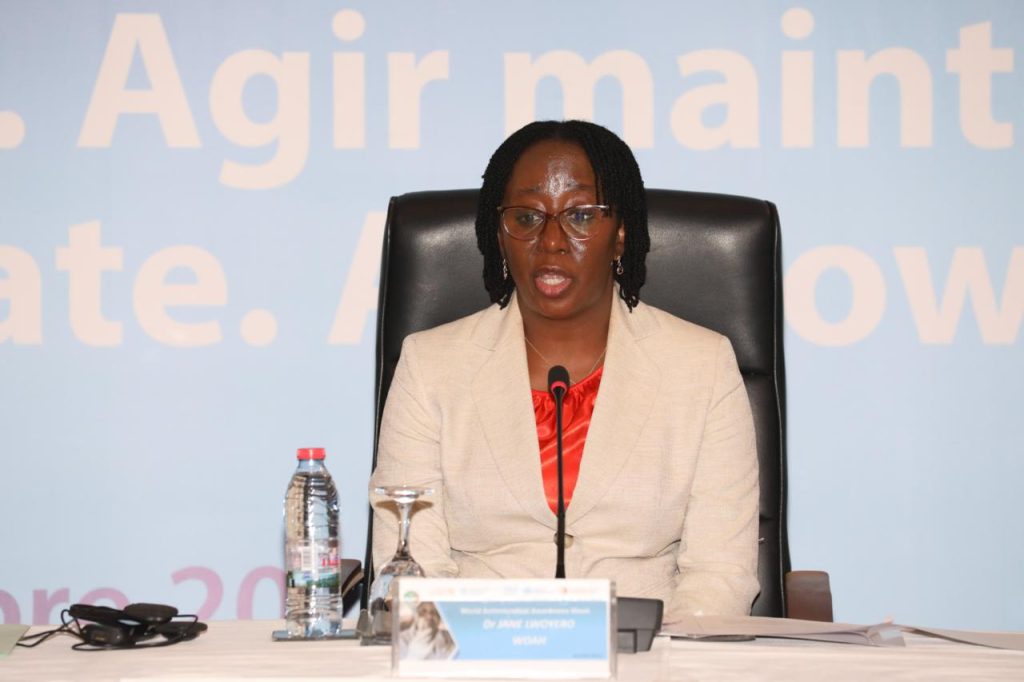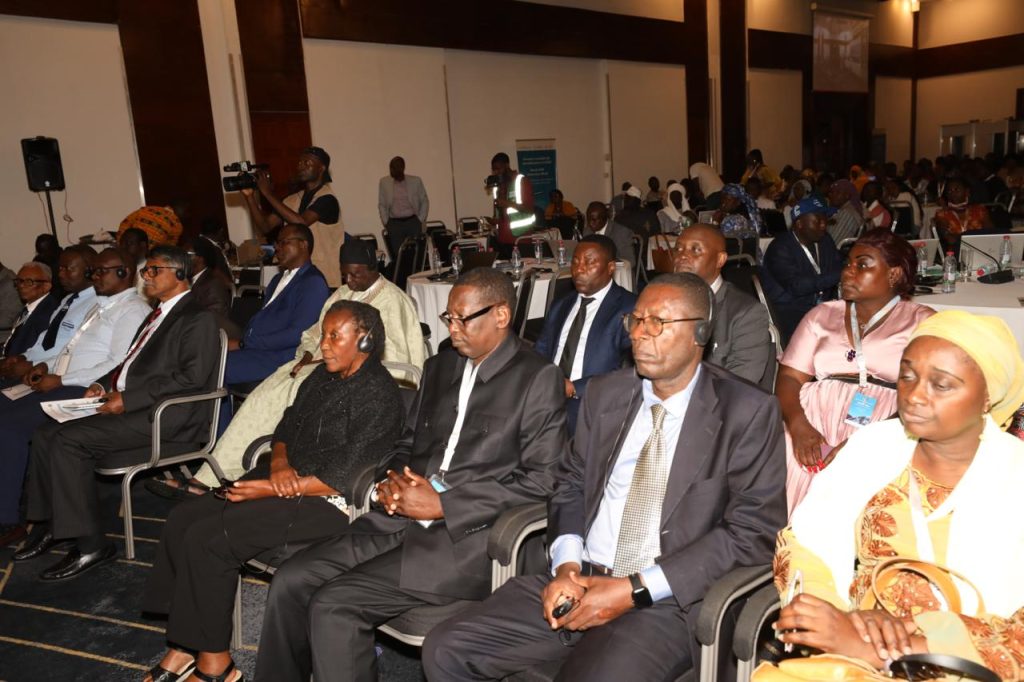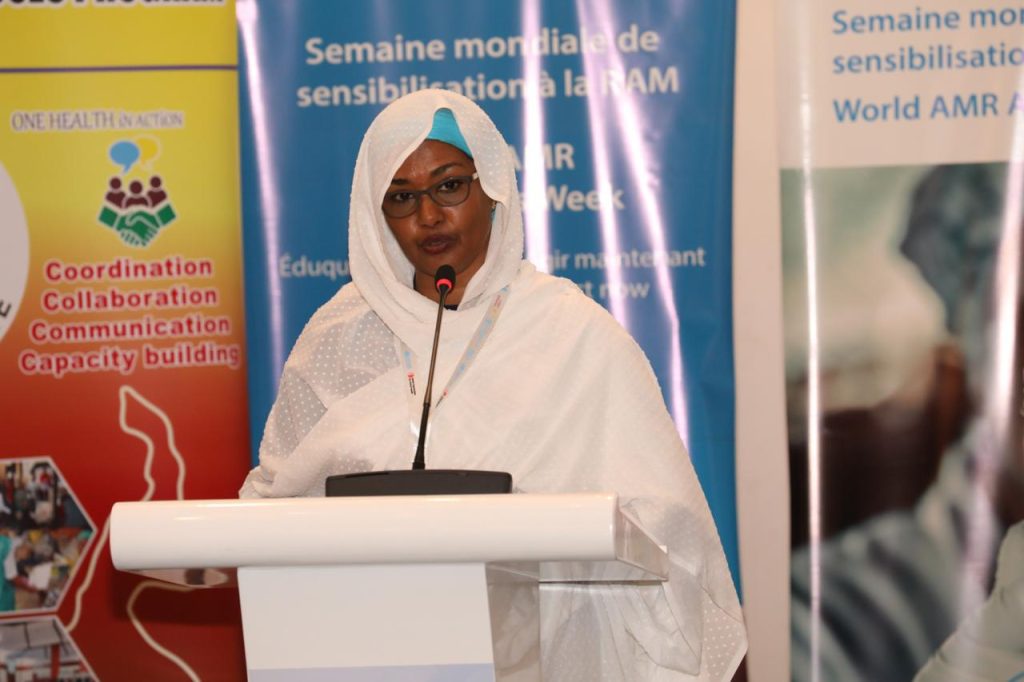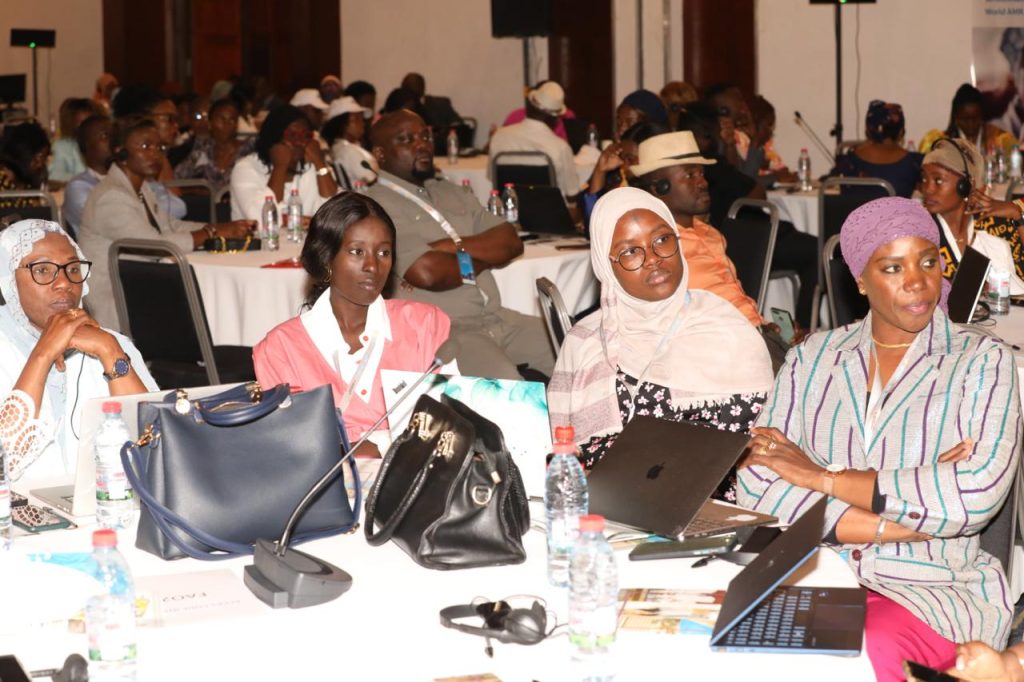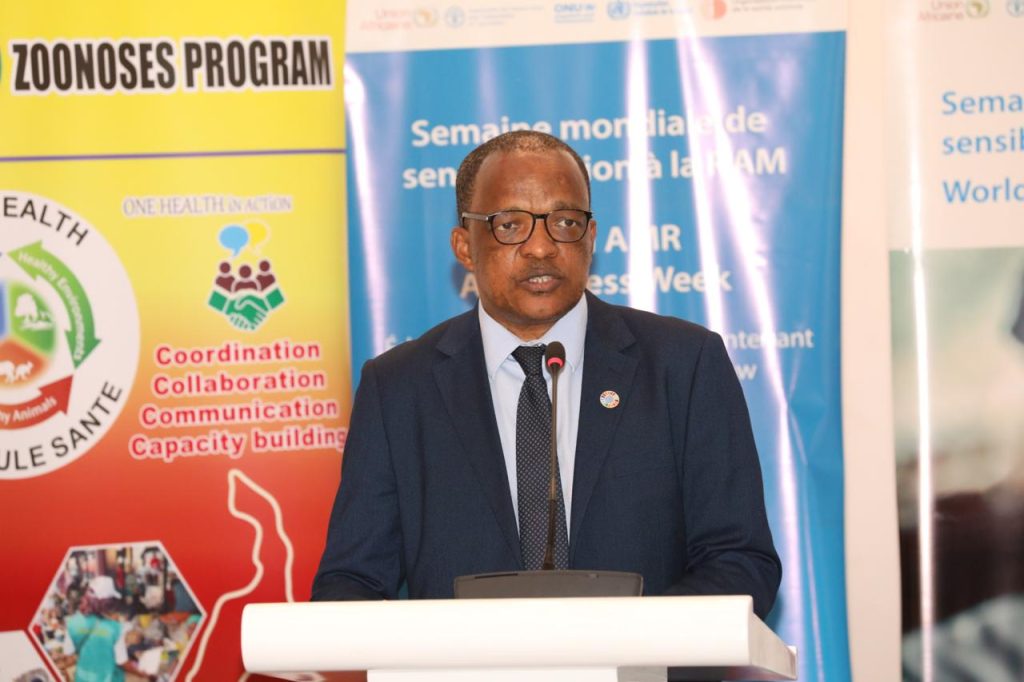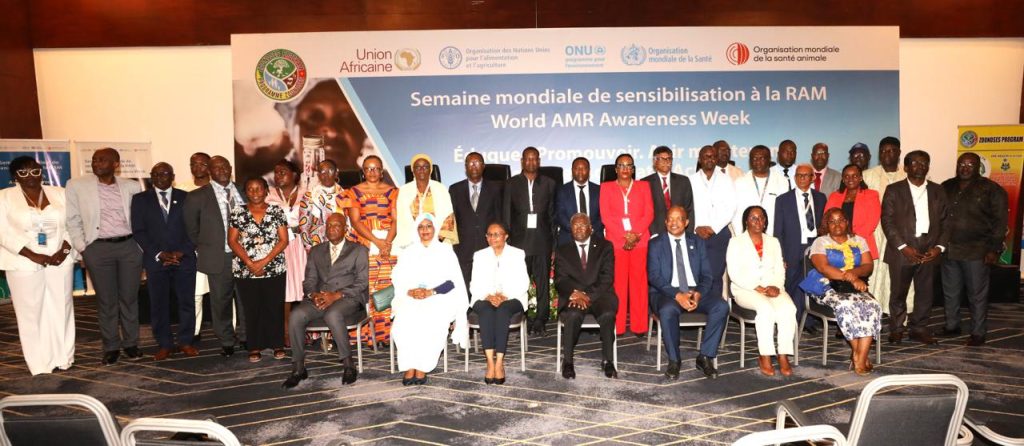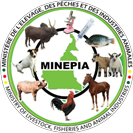Antimicrobial resistance (AMR). Yaoundé hosts the event
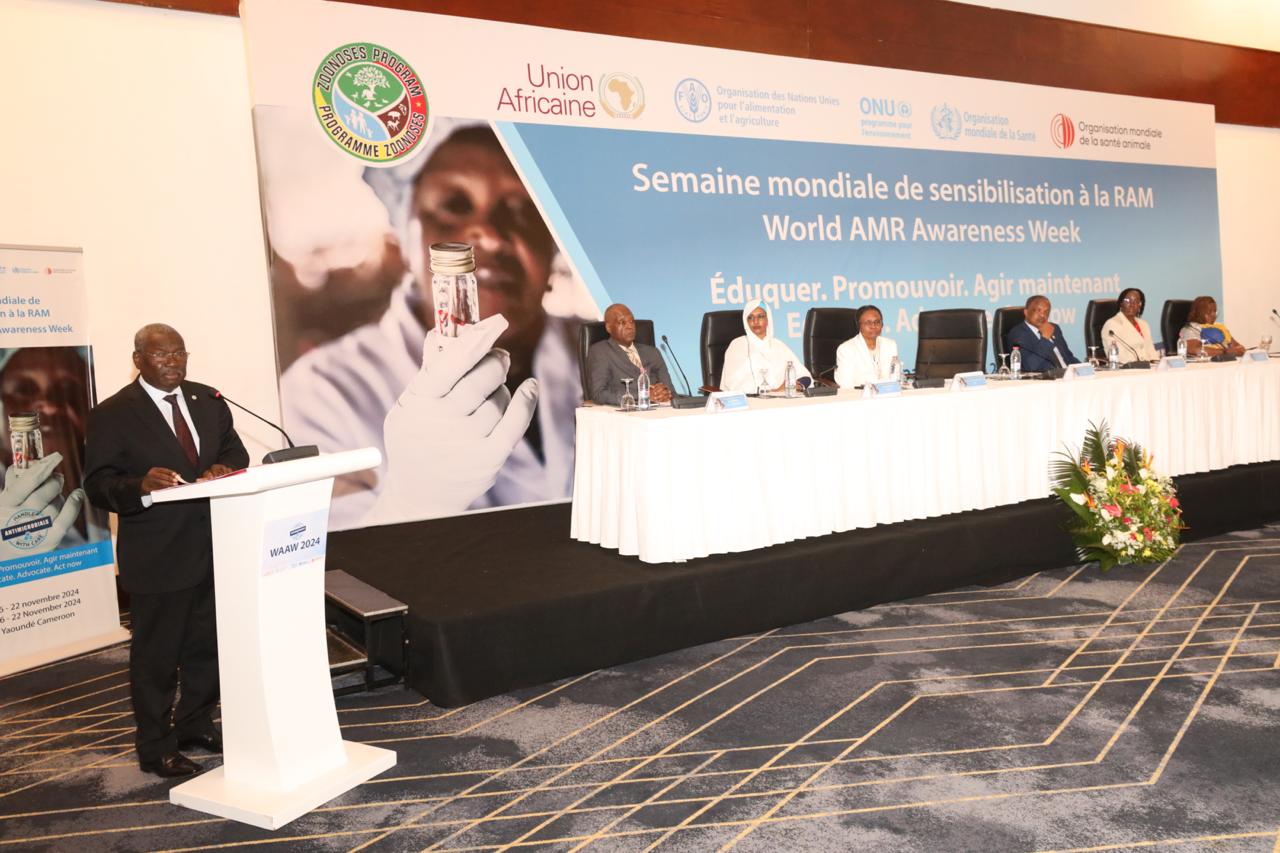
The Minister of Livestock, Fisheries and Animal Industries, Dr. TAIGA, chaired on November 18, 2024 in Yaoundé the launching ceremony of the celebration of the 5th continental edition of the World Antimicrobial Resistance Awareness Week (WAAW) 2024.
Celebrated under the theme, “Educate. Promote. Act now“, antimicrobial resistance (AMR) is one of the key areas of FAO’s policies. As such, the institution has adopted the “One Heath” approach to contribute to the fight against this threat, whose silent nature is particularly devastating for health systems, with repercussions on economic development. Thus, in order to provide the necessary responses to contain the threat, “FAO’s mandate covers antimicrobial stewardship in a variety of disciplines such as aquatic and terrestrial animal health, welfare and production, food and feed safety, crop production and protection, water, land management and the entire agri-food system in general,” said FAO’s Athman Mravili.
In the same vein, Dr. Huyam Salih, Director of the African Union’s Inter-African Bureau for Animal Resources (AU-IBAR) in turn specifies that about 60 to 75% of emerging human pathogens come from animals. It recommends the adoption of a responsible use of antimicrobials with regard to animal health.
FAO calls for the mobilization of all actors involved in the management of AMR. “The situation is particularly worrying on our continent where the inappropriate use of antimicrobials and phytosanitary products is a recurring problem in humans, livestock and agriculture. It takes joint efforts and collaboration at all levels to raise awareness, educate all actors, including communities, and then act “, concluded Dr. Taïga, MINEPIA, during his opening speech.
As a possible solution, Dr. Taïga assures that it is a question of promoting a good understanding of good practices for the use of antimicrobials in all sectors and fields of activity concerned, as well as good practices related to biosafety, infection prevention and control. In addition, it is a question of strengthening surveillance in the various sectors to detect and effectively manage AMR situations, and strengthening the capacities of actors and diagnostic laboratories. In addition, it is necessary to focus on the organization of awareness campaigns among the general public, support for research for the development of new therapeutic strategies and alternatives to the use of antimicrobials, and the implementation of clear and effective policies to regulate the use of antimicrobials and phytosanitary products.
It should be recalled that the strong population growth observed in Africa is exerting palpable pressure on the demand for food in the agricultural sector, resulting in a high production of foods of animal origin and crops associated with the use of antimicrobials. Effective mitigation of Antimicrobial Resistance is imperative and urgent. Moreover, if concrete and effective actions are not implemented, the African continent could record up to 4.1 million deaths per year by 2050.
The devil’s devil
